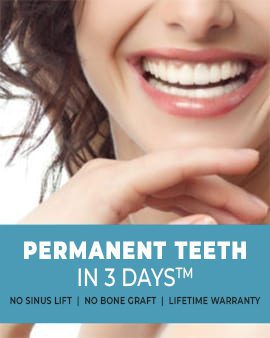Jun 28, 2024
Diet trends have a profound impact on overall health, including dental health. From ketogenic diets to veganism, each dietary choice brings its own set of challenges and benefits for maintaining healthy teeth and gums. Understanding these influences can help individuals make informed decisions about their diet while ensuring optimal oral health.
The Ketogenic Diet and Dental Health
The ketogenic (keto) diet, known for its high-fat and low-carbohydrate approach, has gained popularity for its potential weight loss and metabolic benefits. However, this diet can also influence dental health in both positive and negative ways. On the positive side, the reduction in sugar and carbohydrate intake can lead to a decreased risk of tooth decay. Carbohydrates and sugars are primary culprits in the formation of cavities as they provide a food source for harmful bacteria in the mouth. By minimizing these elements in the diet, the keto diet can reduce the likelihood of plaque buildup and cavities.
However, the keto diet can also have some adverse effects on oral health. One common issue is “keto breath,” a distinctive, often unpleasant odor resulting from the body’s production of ketones during the fat-burning process. While not directly harmful to dental health, keto breath can be a persistent nuisance. Additionally, the high-fat nature of the diet might lead to a reduction in the intake of essential vitamins and minerals crucial for maintaining strong teeth and gums, such as calcium and vitamin D. To mitigate these risks, individuals on a keto diet should ensure they consume adequate nutrients through balanced food choices or supplements.
Veganism and Oral Health
Veganism, which excludes all animal products, is another diet trend that significantly impacts dental health. This plant-based diet is often rich in fruits, vegetables, nuts, and grains, providing an abundance of vitamins and antioxidants that are beneficial for overall health, including oral health. The high fiber content in many plant-based foods can stimulate saliva production, which helps to neutralize acids and wash away food particles, thereby protecting against tooth decay and gum disease.
Despite these benefits, a vegan diet can also pose challenges for dental health. One concern is the potential for a deficiency in essential nutrients like calcium, vitamin D, and vitamin B12, which are crucial for maintaining healthy teeth and bones. Dairy products are a primary source of these nutrients, and without careful dietary planning, vegans may miss out on them. Insufficient calcium and vitamin D can lead to weakened teeth and bones, increasing the risk of tooth decay and periodontal disease. Vegans should seek alternative sources of these nutrients, such as fortified plant milks, leafy greens, and supplements, to ensure their dental health is not compromised.
Balanced Diet for Optimal Oral Health
Regardless of the diet trend one follows, it is essential to maintain a balanced intake of nutrients to support dental health. Consuming a variety of foods that provide essential vitamins and minerals is crucial. For example, calcium-rich foods such as dairy products, leafy greens, and almonds are vital for strong teeth and bones. Vitamin D, obtained from sunlight exposure and foods like fortified cereals and plant milks, helps the body absorb calcium effectively.
Additionally, vitamin C, found in citrus fruits, strawberries, and bell peppers, plays a crucial role in maintaining healthy gums by supporting collagen production. Phosphorus, found in fish, eggs, and nuts, works in tandem with calcium to strengthen tooth enamel. Omega-3 fatty acids, present in fatty fish, flaxseeds, and chia seeds, have anti-inflammatory properties that can benefit gum health.
The Importance of Oral Hygiene
Regardless of dietary choices, maintaining good oral hygiene practices is paramount. Regular brushing and flossing, along with routine dental check-ups, can help prevent many diet-related dental issues. It is also advisable to drink plenty of water throughout the day to help rinse away food particles and bacteria, and to avoid excessive consumption of sugary and acidic foods and beverages that can erode tooth enamel.
In conclusion, while diet trends like the ketogenic diet and veganism offer various health benefits, they also present unique challenges for dental health. By understanding these influences and making informed dietary choices, individuals can enjoy the benefits of their chosen diets while maintaining optimal oral health. Ensuring a balanced intake of essential nutrients and adhering to good oral hygiene practices are key strategies for preserving a healthy, radiant smile.
 |
 |
 |
Time to Get in Touch With Us!!
For more information about the Smile Makeover in India, get in touch with Dr. Motiwala’s Dental Clinic & Implant Center at +91 99596 14584. Simply fill out the form on our CONTACT US page.





